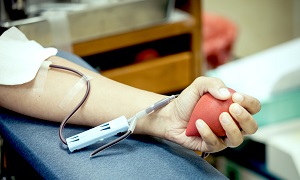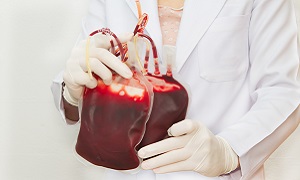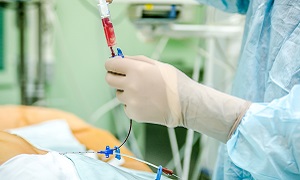Best Autologous Bone Marrow Transplant Doctors in India
Best Autologous Bone Marrow Transplant Hospitals in India
- City: Mumbai, India
Hospital Highlights:
- Fortis Hiranandani hospital was established in 2007.
- The hospital is an advanced tertiary care, multi-specialty hospital equipped with 149 beds.
- The hospital is equipped with a super ICU to provide emergency medical care to critically ill patients.
- The hospital is NABH accredited.
- The critical care facility in the hospital is augmented with the state-of-the-art facilities that facilitate speedier diagnosis and efficient monitoring.
- The hospital provides specialty medical services in cardiology, orthopedic science, pediatric science, neurology, diabetic care, urology, nephrology, ENT, obstetrics, gynecology, cosmetic surgery, bariatric surgery, neuro and spine care.
- City: Gurugram, India
Hospital Highlights:
- W Pratiksha Hospital, Gurugram, is one of the best hospitals in the NCR region. It is also a top hospital in India for IVF. Since its inception, the hospital has performed over 5500 successful IVFs. The hospital also specializes in gynecology.
- With over 20 years of experience in providing quality healthcare, the hospital is known as one of the most trusted and valued health providers in India.
- Equipped with world-class medical facilities and advanced technology, the hospital’s doctors and clinicians also have a track record of delivering excellent results. The hospital is also known for focusing on preventive well-being as much as on curative treatment.
- The hospital has earned the trust of its patients, by providing the best available treatments at affordable costs.
- City: Gurugram, India
Hospital Highlights:
- Paras hospital was established in 2006 and is the 250 bedded flagship hospital of Paras Healthcare.
- The is supported by a team of doctors of international and national repute.
- The hospital is NABH accredited and also the first hospital in the region to have a NABL accredited laboratory.
- The hospital provides specialty medical services in around 55 departments including Neurosciences, Joint Replacement, Mother & Child Care, Minimal Invasive Surgery, Gynecology and Obstetrics, Ophthalmology, Dermatology, Endocrinology, Rheumatology, Cosmetic and Plastic surgery.
- The hospital is equipped with state-of-the-art technologies.
- City: Kolkata, India
Hospital Highlights:
- Fortis Hospital, Anandapur, Kolkata is a world-class super-speciality equipped with the latest technologies in the medical world.
- The hospital is NABH accredited.
- This state-of-the-art facility specializes in cardiology and cardiac surgery, urology, nephrology, neurosciences, orthopaedics, digestive care, emergency care and critical care.
- The hospital, governed by integrated Building Management System (IBMS), has a pneumatic chute system, for quick vertical and horizontal transportation between floors, facilitating speedy transfer of patient specimens, documents, reports, and medicines to the concerned departments.
- The hospital also has a nephrology department with over 28 advanced dialysis units.
- City: Mumbai, India
Hospital Highlights:
- SL Raheja hospital is a 140-bed multi-specialty tertiary care hospital that is being managed by Fortis Healthcare Ltd.
- The hospital is a benchmark in healthcare and medical facilities in the neighborhood of Mahim & the western suburbs.
- L.Raheja Hospital, Mahim has one of the most effective ICU and Casualty care services.
- The hospital provides specialty medical services in Cardiology, Oncology, Neurology, Orthopedics, Mother & Child Care, and in Diabetes.
- City: Mumbai, India
Hospital Highlights:
- Wockhardt Hospitals were established in the year 1973, originally called First Hospitals and Heart Institute.
- Wockhardt Hospitals are super specialty health care networks in India, nurtured by Wockhardt Ltd, India’s 5th largest Pharmaceutical and Healthcare company.
- Wockhardt Hospitals is associated with Partners Harvard Medical International, an international arm of Harvard Medical School, USA.
- Wockhardt Heart Hospital performed India’s first endoscopic heart surgery.
- The hospital has a state-of-the-art infrastructure equipped with the latest technologies and modern equipment.
- It has special Centers of Excellence dedicated to the major specialties to provide hassle-free and high-quality clinical care.
- City: Gurugram, India
Hospital Highlights:
- The CK Birla Hospital in Gurugram is a NABH-accredited multi-specialty hospital.
- The hospital strives to increase the quality of healthcare by focusing on UK NHS nurse and midwife training requirements. Policies and practices derived from the National Institute for Health and Treatment Excellence (NICE) recommendations in the United Kingdom ensuring that a strong focus on safety, high-quality clinical care, and sanitation is maintained.
- The hospital’s cutting-edge technology and facilities allow for real-time communication and seamless collaboration among caregivers, ensuring accuracy and the best possible results. Those with foreign experience and accreditations make up part of the hospital’s team of clinicians.
- City: Ahmedabad
Hospital Highlights:
- As a member of the Apollo Hospitals Group, Apollo Hospitals International Limited, Ahmedabad is one of the most popular and sought-after medical facilities in Gujarat.
- Through its 6 Centres of Excellence and various affiliated branches, which cover all specialties and subspecialties, the hospital provides the most advanced clinical services.
- Since its inception in 2003, the hospital has been providing each patient with the most up-to-date medical equipment and state-of-the-art technology.
- With more than 150 successful organ transplants, including liver and renal transplants, the facility has been able to build a strong and extensive organ transplant program.
- In addition to performing 600 surgeries and caring for over 1800 patients on an IP basis, the hospital sees more than 18,000 patients on average in the outpatient department.
- With one of the biggest cardiology teams in the area, the hospital provides state-of-the-art regional care treatment in Cardiac Sciences.
- Additionally, the hospital offers a broad range of Neuro Interventional techniques to help stroke patients recover more quickly.
- City: Noida, India
Hospital Highlights:
- Jaypee Hospital is the flagship hospital of the Jaypee Group.
- This hospital has commissioned 525 beds in the first phase and has been planned and designed as a 1200 bedded multi-specialty facility.
- It holds the accreditation of the NABH and NABL.
- The hospital has state-of-the-art infrastructure equipped with the latest technologies and modern equipment like 64 Slice PET CT, Dual Head 6 Slice SPECT CT, Gamma Camera, and Da Vinci Robotic Surgery for comprehensive robotic surgical solutions.
- It has special Centers dedicated to the major specialties to provide hassle-free and high-quality clinical care.
- City: Mumbai, India
Hospital Highlights:
- Reliance Hospital is one of the best super-specialty care hospitals in Navi Mumbai.
- The main purpose of this hospital is to become a trustworthy place for the best health and hope for society. The hospital is well connected to the suburbs of Mumbai and Navi Mumbai.
- The hospital has various specialty departments, viz., Accident & Emergency, Anesthesiology, Dental Services, Dermatology, Diabetology, Dietetics Nutrition, Endocrinology, ENT, Gastroenterology, General Surgery, Gynaecology And Obstetrics, Hepato Pancreato Biliary Surgery, Infectious Disease, Internal Medicine, Interventional Radiology, Laboratory Medicine, Minimal Access Laparoscopic Surgery, Nephrology, Neurosciences, Opthalmology, Orthopaedics, Paediatrics, Pain Management Palliative Care, Physical Medicine Rehabilitation, Plastic And Reconstructive Surgery, Psychiatry, Pulmonary Medicine, Radiology, Rheumatology, Transplant, Urology Andrology, Vascular Surgery
What is Autologous Bone Marrow Transplant (BMT)?
Autologous Bone Marrow Transplant is a medical procedure where stem cells from the patient’s own blood are extracted to replace the infected stem cells in the patient’s damaged bone marrow.
When is Autologous Bone Marrow Transplant recommended?
Autologous transplant is a type of Bone Marrow Transplant or BMT, where a patient is experiencing damage or infection of the bone marrow. The objective is elimination of the infected or abnormal stem cells in the patient’s blood by replacing them with good stem cells extracted from the patient’s own body. The new stem cells flowing to the marrow improves the rate of blood cell growth. However, the infected or damaged blood cells have to be removed from the system first before introducing the new stem cells.
Autologous Transplant benefits
One of the primary benefits of opting for the Autologous Transplant procedure is that you don’t have to bother about trying to find the best possible match from a third-party donor. The procedure is pretty much self-sufficient. However, the type of procedure you’ll be undergoing can only be determined by the patient’s doctor and medical team based on the diagnostics, intensity of the condition, the patient’s age, weight, coping abilities and more.
The Procedure explained
Stem Cell Extraction Methods:
Primarily there are two common methods doctors use to take stem cells from the patient’s blood. The doctor and the medical team will be the sole decider of which method will suit the patient best.
PBSC Collection
PBSC stands for Peripheral Blood Stem Cell and the process through which it’s done is known as apheresis. A few days prior to the procedure, the patient’s medical team injects stem cell growth boosters to increase the amount of blood-forming cells in the bloodstream. During the procedure blood is extracted from the patient through IV that flows into a machine that filters out the stem cells. The remaining blood is returned to the patient’s body through the second IV. The stem cells are then frozen and kept securely for the transplant day.
The procedure is absolutely painless and the patient will be awake the whole time.
Bone Marrow collection
Autologous Transplant preparation
The preparation includes a procedure called a preparative regimen or conditioning in common term. This procedure is performed a few days before the transplant where the patient undergoes chemo or radiation therapy to kill all the harmful stem cells in the system. The amount of chemo or radiation dose or the number of times the patient needs to undergo this procedure is decided by the doctors based on the patient’s medical reports.
Apart from this as a part of general preparation, you are expected to help the medical team out with a detailed report of your medical history, ongoing medications including vitamins, herbal and supplements, past or present medical reports that the medical team is unaware of etc.
Day Zero
The transplant date is fixed just a few days after the conditioning process, the day being called ‘day zero’. The procedure takes place in the hospital. To introduce the stem cells to your system, a thin tube known as the central line is attached to a vein in the chest of the patient. The process takes a few hours to complete. This is a painless procedure, but patients might feel some after-effects due to the introduction of new stem cells in the system.
Autologous Transplant side-effects
The frozen stem cells introduced in the patient’s system often contains a preservative which may cause some undue side-effects after the procedure is completed. Doctors usually prescribe medications and an ample amount of fluids to flush the medication out of your system. These side-effects may include
- Breathing difficulty
- Headache
- Hives
- Chest pain
- Fever and chills
- Nausea
Common Side-effects
Advanced procedures such as a bone marrow transplant come with its own set of general side effects which include:
- Mouth sores and ulcers
- Diarrhea
- Fatigue
- Nausea and Vomiting
- Bleeding disorders/ frequent bleeding
Recovery & care after Autologous Bone Marrow Transplant
The procedure starts showing its effects in a week or two when the new stem cells travel to the area of damage and gradually starts producing new blood cells to fill in the gap the old damaged cells have left behind. The recovery process varies from patient to patient. Patients are advised to routinely show up for follow-ups to confirm their recovery progress.
Usually, patients undergoing Autologous transplant need constant monitoring and support. Doctors may prescribe blood transfusion or antibiotics to prevent any possible chances of infection. Infection risks are there for the first two-three weeks post the procedure, but slowly and steadily the patient’s body starts getting used to the new stem cells.
General precautions after the procedure include-
- Strict dietary regulations recommended by certified nutritionists or doctors should be followed to ensure a speedy recovery.
- Taking prescribed medications strictly. Ask your doctor before making any modifications in your medicine doses.
- Refrain from heavy lifting or strenuous physical work.
- Take doctor follow-ups seriously to avoid complications like infection.
FAQs
How long do I have to stay in the hospital?
About 3 weeks’ stay in hospital and about 2 months’ stay in India for follow-up and obbservation.
Can Autologous Transplant cure cancer completely?
The main aim of the autologous transplant is to eliminate the damaged or infected blood cells completely or at least prolong their spread in order to increase life span. However, doctors cannot guarantee the procedure will completely cure cancer. In many documented cases, the patient has recovered completely while in other documents, relapse from the patient was noted. However, in cases as this, a second transplant is prescribed.
What happens if my transplant fails?
Even though the chances are rare in autologous transplants, the procedure still has a risk of failing. In that case, based on the patient’s condition, a second transplant procedure is tried.
What is the success rate of Autologous transplants?
The success rates on an average vary from 60-80%. However, the success rate heavily depends on the patient’s immunity, intensity of the condition, and more.














